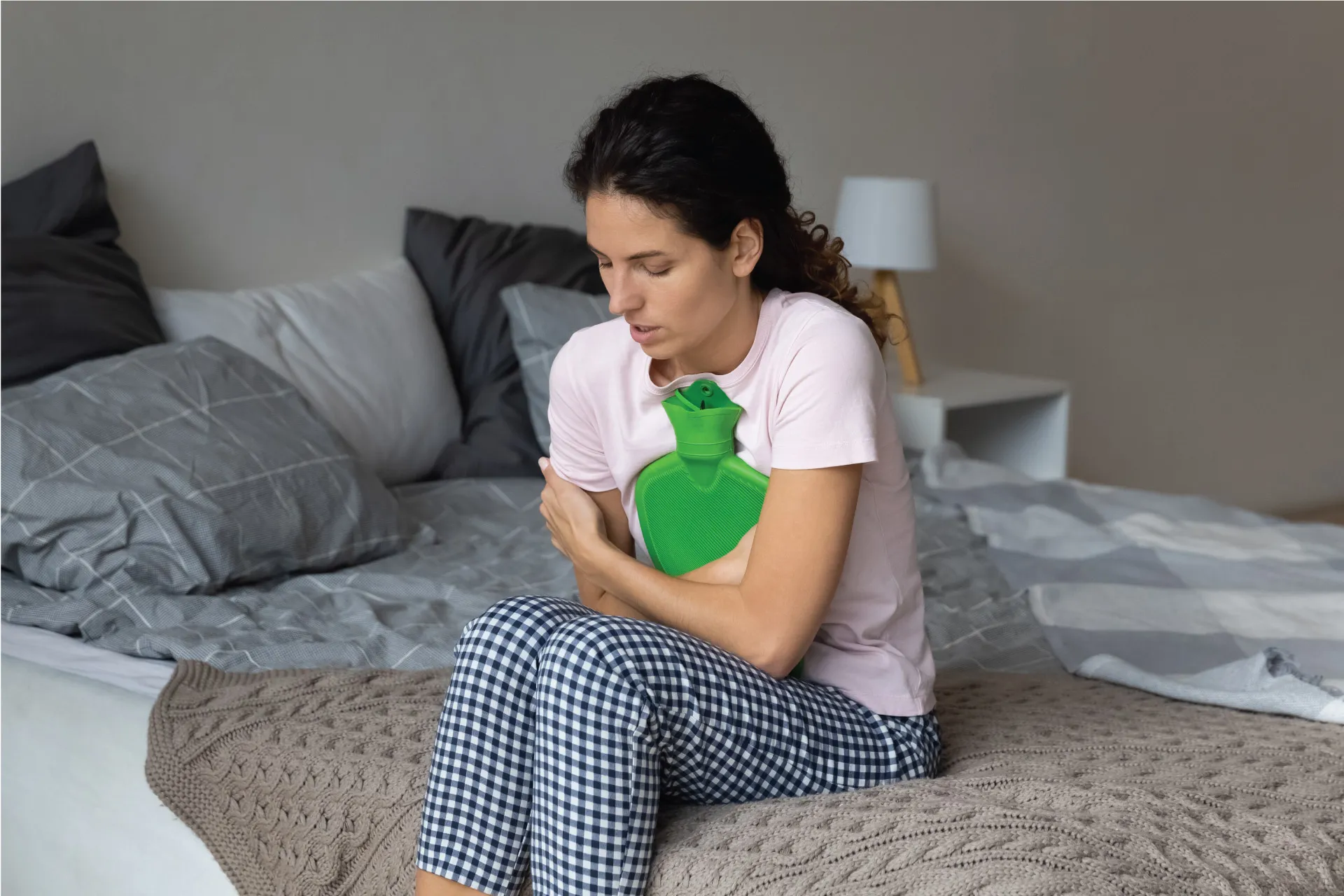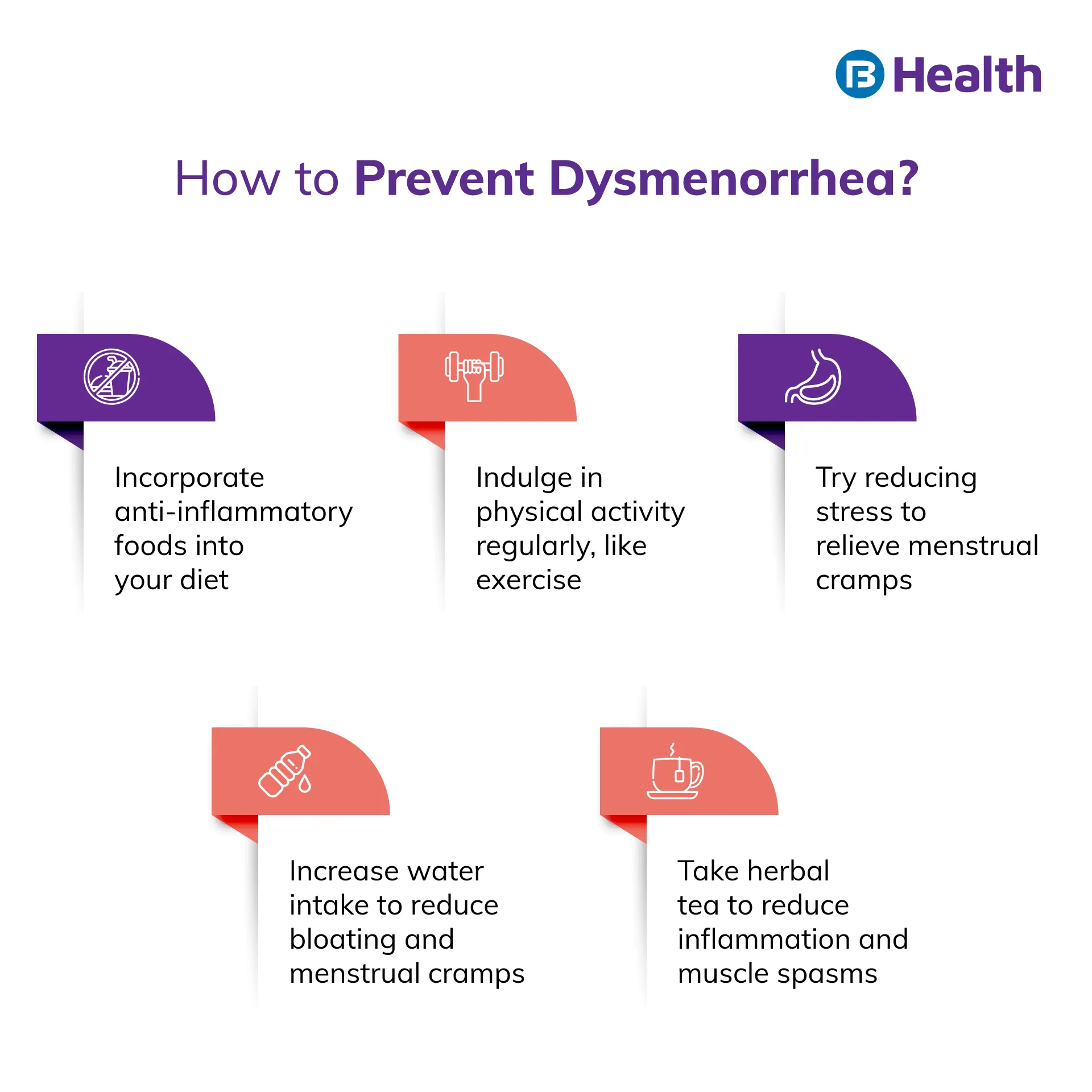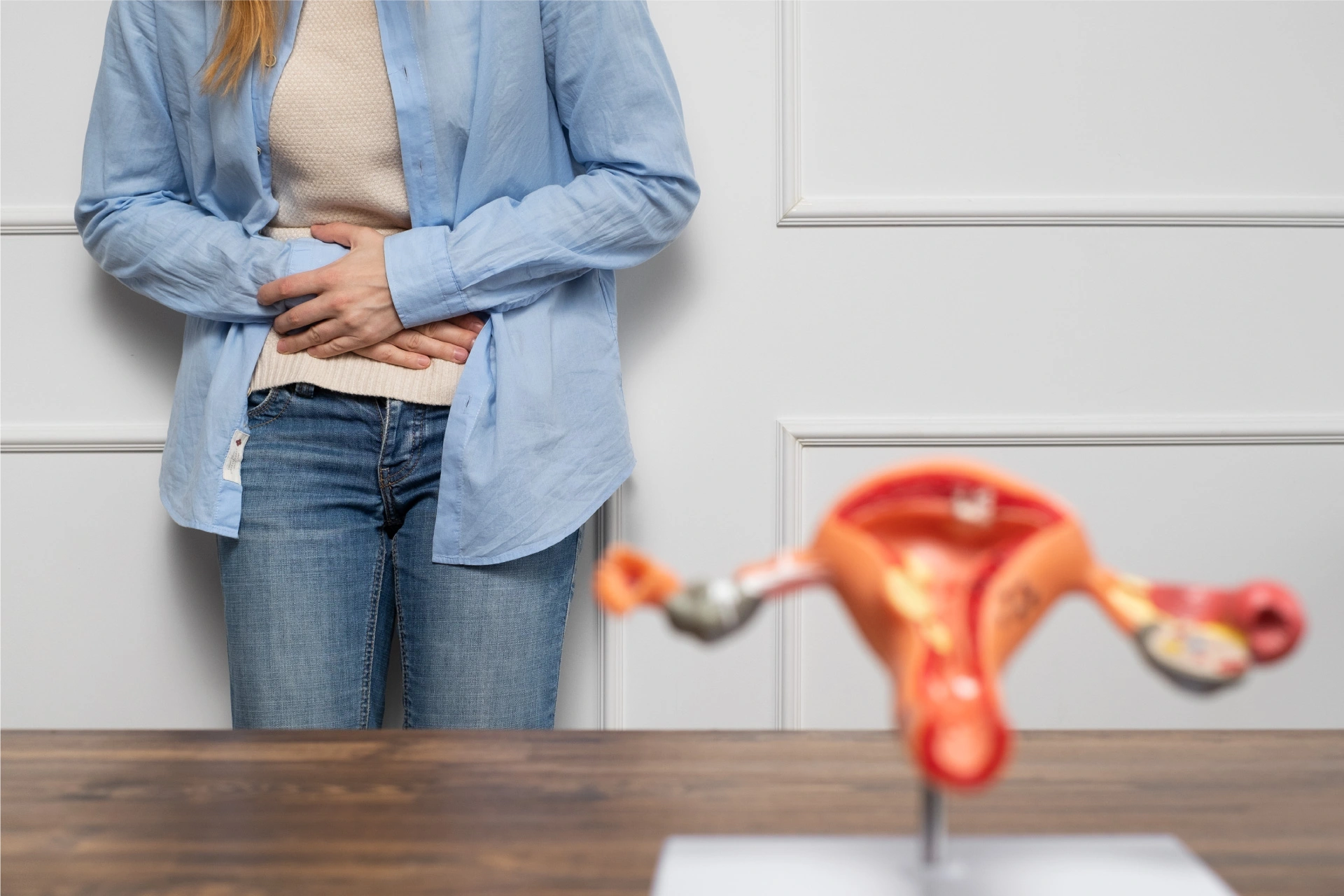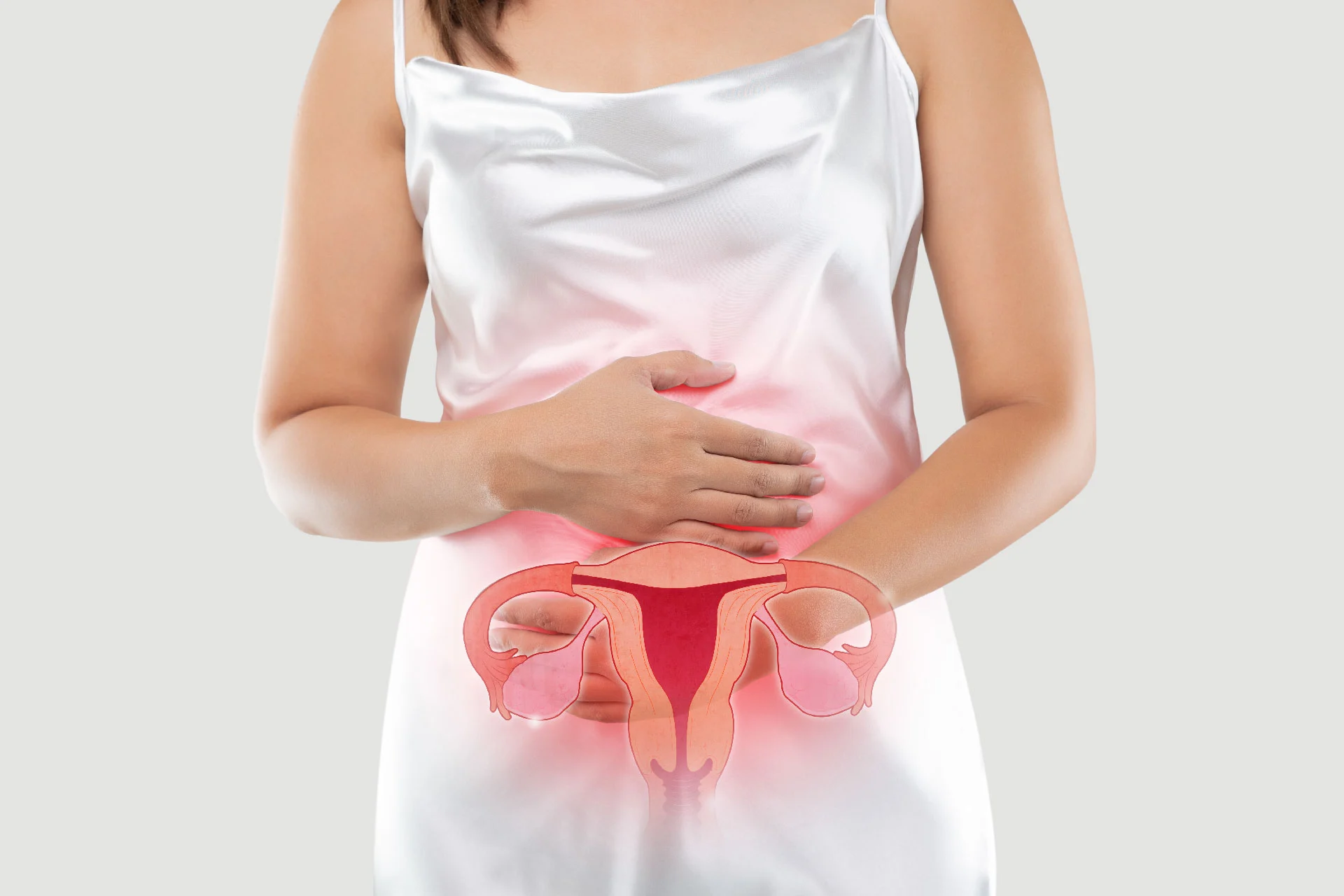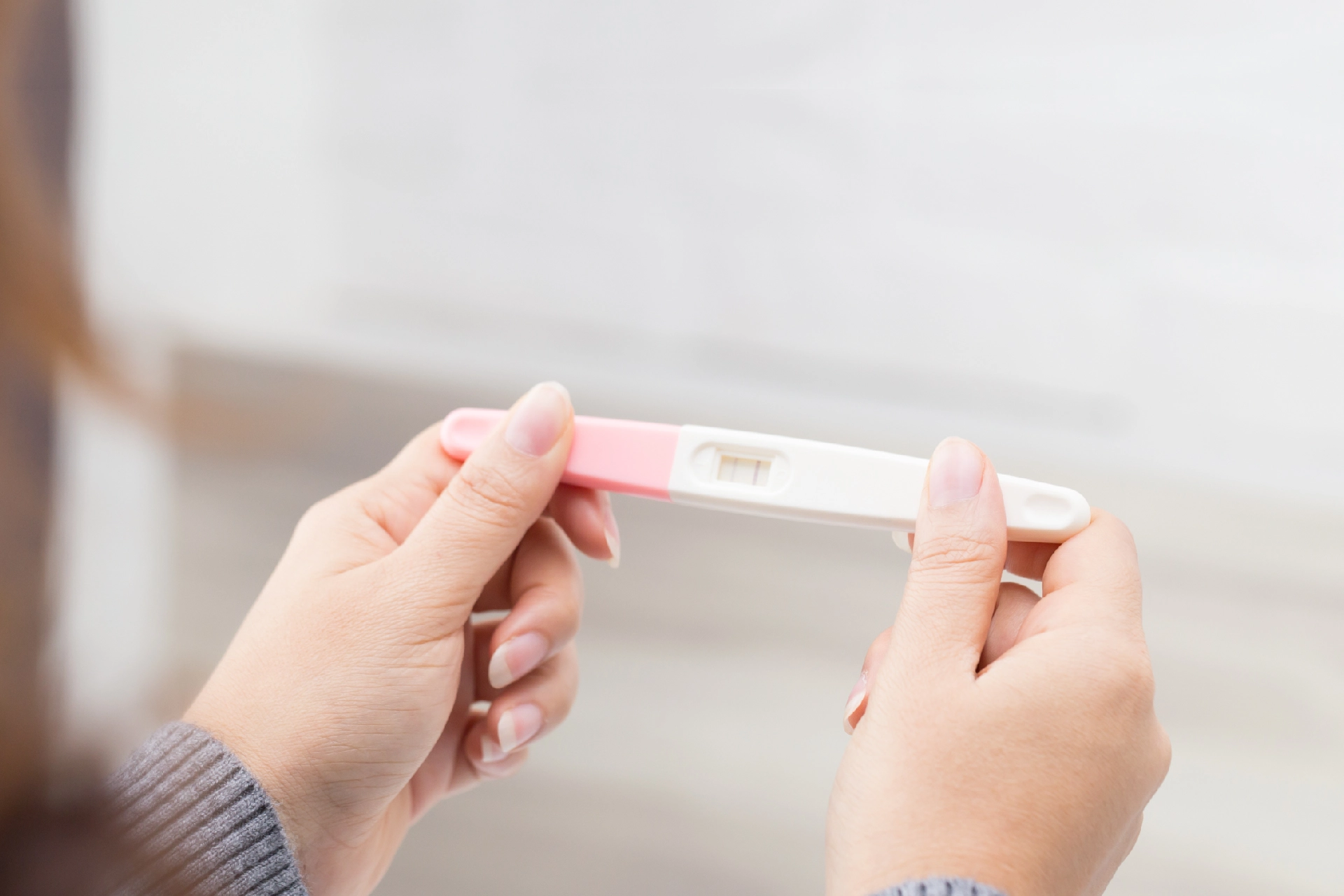Gynaecologist and Obstetrician | 5 min read
Dysmenorrhea : Meaning, Symptoms, Diagnosis, Treatment
Medically reviewed by
Table of Content
Synopsis
Women may feel pain before their periods or during the menstrual cycle. However, it becomes intolerable for some women when the cramps stop them from doing daily activities. This condition is called Dysmenorrhea. Read ahead to know all about it.
Key Takeaways
- Menstruation is the vaginal bleeding that occurs due to the shedding of the uterus lining
- During menstruation, the pain felt in the lower abdomen, is also referred to as Dysmenorrhea
- Hormones like oestrogen and progesterone regulate your menstrual cycle and period
Dysmenorrhea is categorized into primary and secondary types depending on the intensity and cause. Primary Dysmenorrhea is common in most ladies, whereas secondary is a matter of concern. Although the good thing is both conditions are treatable. Treatment will help to deal with menstrual cramps. Hence read further to gather more information and make a wise decision according to your health condition.
What is Dysmenorrhea?
As already discussed, Dysmenorrhea is pain or menstrual cramps during periods. To understand Dysmenorrhea meaning better, you can assume it means a difficult monthly flow. It is classified into two types according to intensity and cause of the pain.
The Dysmenorrhea types are:
Primary Dysmenorrhea
It is the most common type of pain seen in 50% of women.[1] It doesn't indicate any underlying gynecologic disorder. The pain may start one or two days before the period or as soon as the bleeding begins. Some women may experience it for 2-3 days. However, in most cases, the pain lasts for 12-72 hours. Ladies in late adolescence or their early 20s likely experience this. However, the pain gets better as they mature, specifically after childbirth.
Secondary Dysmenorrhea
It occurs due to gynecologic disorders or infections. It usually begins before menstruation and lasts longer than natural cramps. It is common for women in adulthood. Secondary Dysmenorrhea is slightly more severe than primary. However, medication and surgery help to cure it.
![Prevent Dysmenorrhea Prevent Dysmenorrhea]() Dysmenorrhea Causes
Dysmenorrhea Causes
Dysmenorrhea occurs due to the release of a hormone called prostaglandin that makes the uterus contract. The uterus contracts throughout menstruation, whereas sometimes, the uterus contracts more strongly, which may affect the supply of oxygen to muscle tissues. The conditions like vaginal dryness and preeclampsia may also cause abdominal pain.
Other Dysmenorrhea causes include:
- Smoking [2]
- Puberty before attaining the age of 11
- Family history of severe menstrual cramps
The reasons for secondary Dysmenorrhea are:
Endometriosis
The condition in which tissue similar to the uterus lining grows outside the uterine cavity. Tissue bleeds during the period resulting in pain and swelling.
Adenomyosis
The condition in which tissue lining exists within the uterus and grows into the uterus wall. In this condition, the uterus enlarges, along with pain and excessive bleeding.
Fibroids
The abnormal growth inside and outside the uterus wall is called fibroids. This results in irregular menstruation and pain in the lower abdomen.
Pelvic Inflammatory disease
It is an infection that affects female reproductive organs. It occurs when sexually transmitted bacteria spread to the uterus and fallopian tubes from the vagina.
Cervical stenosis
It is the condition in which space inside the cervix is too small or narrow and affects menstrual flow, which builds up pressure inside the uterus resulting in abdominal pain.
Secondary Dysmenorrhea results due to complications associated with reproductive organs.
Additional Read: What is Vaginal Dryness?Dysmenorrhea Symptoms
For some women, Dysmenorrhea symptoms include:
- Intense cramping pain in the lower abdomen
- May experience pressure inside the abdomen
- Pain in the lower back, thighs and hips
- Weakness and dizziness
- Headache and vomiting
- Lack of appetite
Dysmenorrhea Treatment
Here are a few home treatments that usually help to relieve Dysmenorrhea.
- Taking a bath in warm water
- Using a heating pad or hot bottle in the abdomen or lower back
- Regular exercising
- Limit the intake of food that contains higher caffeine
- Avoid the unhealthy habit of smoking
- Limit the intake of alcohol
- Include nutritious substances in your diet
- Massage back and lower abdomen
- Relax via yoga, breathing and relaxing exercises
- Try anti-inflammatory drugs like ibuprofen before the expected period date
- Try vitamin supplements
- Take enough rest and avoid stress
Other medical Dysmenorrhea treatments include:
The doctor may prescribe medicines like:
- Pain relievers like acetaminophen
- Doctors, in rare cases, may suggest antidepressants to control the mood swings associated with PMS
- Birth control pills to decrease the release of prostaglandins
- Nonsteroidal anti-inflammatory drugs
The doctor may recommend surgery only if other treatments fail.
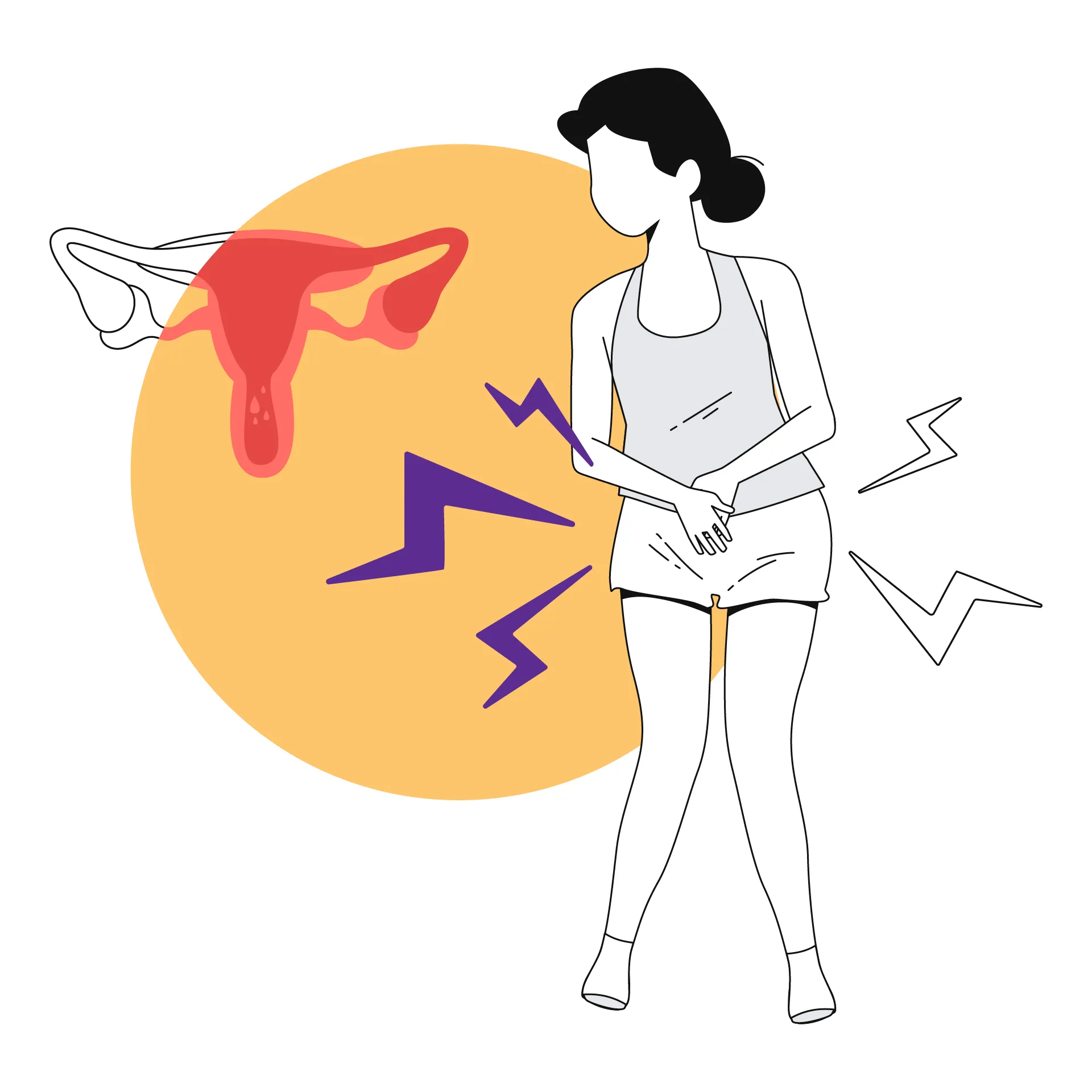
Dysmenorrhea Diagnosis
If you are experiencing severe pain every month, it is better to consult a gynaecologist. See the doctor immediately if:
- Experiencing severe pain after the age of 25
- Cramping associated with nausea and diarrhoea
- Sudden pelvic pain when you are not on your period
- Changes in smell, texture and colour of vaginal discharge
- Symptoms worsen periodically
The doctor may ask questions regarding your medical history and may conduct physical and pelvic examinations to determine the signs of infection. To be sure of the underlying disorder, your healthcare provider may order CT, MRI and ultrasound. The doctor may order a laparoscopy, a procedure to examine your abdominal cavity.
Additional Read: Preeclampsia: Symptoms, CausesDysmenorrhea Complications
Usually, menstrual cramps don't cause medical complications. However, it may interfere with your day-to-day activities.
Conditions accompanied by severe menstrual cramps may lead to other health issues. For example, endometriosis may lead to a fertility problem.
Those seven days of periods are tough. Taking care of your daily routine and bearing severe pain is difficult. Although, you can ease this complication by taking a doctor's help. If you are hesitant to visit a gynaecologist directly, try Bajaj Finserv Health. Here you can consult experts from the comfort of any location. You need to download the app, register details and book an online doctor consultation. Take a step to enjoy your menstrual day as every other day!
References
- https://www.ncbi.nlm.nih.gov/pmc/articles/PMC4535108/#:~:text=Primary%20Dysmenorrhea%20refers%20to%20menstrual,than%2050%25%20of%20menstruating%20women.
- https://pubmed.ncbi.nlm.nih.gov/32294123/#:~:text=The%20results%20indicated%20that%20smokers,CI)%3A%201.30%2D1.61
Disclaimer
Please note that this article is solely meant for informational purposes and Bajaj Finserv Health Limited (“BFHL”) does not shoulder any responsibility of the views/advice/information expressed/given by the writer/reviewer/originator. This article should not be considered as a substitute for any medical advice, diagnosis or treatment. Always consult with your trusted physician/qualified healthcare professional to evaluate your medical condition. The above article has been reviewed by a qualified doctor and BFHL is not responsible for any damages for any information or services provided by any third party.

